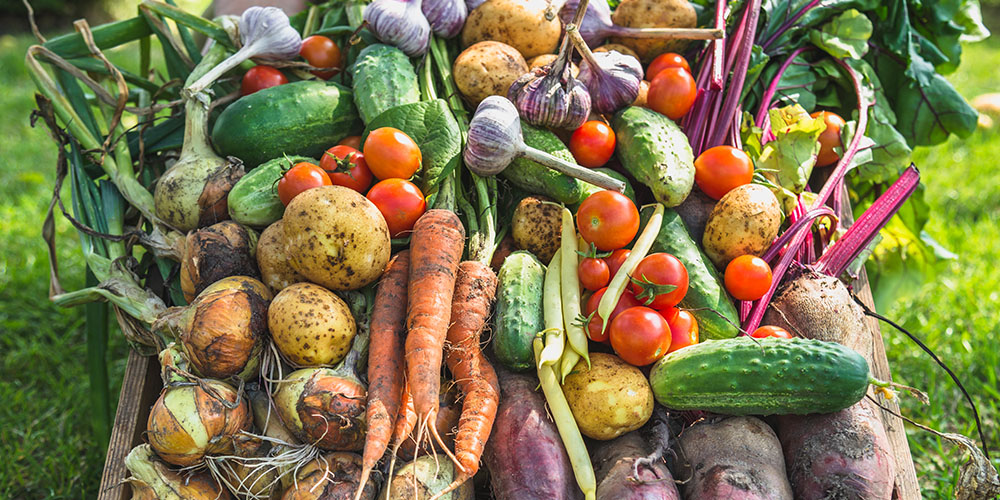In the verdant landscapes of England, amidst rolling hills and fertile valleys, lies a tradition as old as the soil itself: growing one’s own food. From cottage gardens to allotments, the act of cultivating fruits, vegetables, and herbs has been woven into the fabric of English culture for centuries. Yet, in an age dominated by supermarkets and convenience foods, the importance of this practice may seem diminished. However, the resurgence of interest in home gardening and allotment plots underscores a profound realization: growing your own food is not just a hobby or a quaint pastime—it is a vital act of resilience, sustainability, and connection. In this exploration, we delve into the multifaceted importance of growing your own food in England, touching upon its benefits for health, community, and the environment.

Health and Nutrition: From Plot to Plate: At the heart of the movement to grow your own food lies a simple yet profound truth: fresh is best. In an era where processed foods laden with additives and preservatives dominate the market, homegrown produce stands as a beacon of nutritional excellence. By cultivating fruits and vegetables in their own gardens or allotments, individuals have direct control over the quality and composition of their food. From succulent tomatoes bursting with flavor to crisp salad greens brimming with vitality, homegrown produce offers a bounty of vitamins, minerals, and antioxidants essential for optimal health. Moreover, the act of tending to a garden or allotment plot promotes physical activity and outdoor engagement, further enhancing overall well-being.
Food Security and Resilience: In an increasingly uncertain world marked by global supply chain disruptions and climate change-induced extremes, the imperative of food security looms large. Growing your own food provides a tangible solution to this challenge, offering a measure of self-reliance and resilience in the face of adversity. In times of scarcity or crisis, home gardens and allotments serve as vital lifelines, ensuring access to fresh, nutritious produce when store shelves may be bare. Furthermore, by diversifying food sources and reducing reliance on imported goods, individuals contribute to the stability and sustainability of local food systems. In essence, growing your own food fosters a sense of empowerment and preparedness, enabling communities to weather storms, both literal and metaphorical.
Environmental Stewardship and Sustainability: Beyond its benefits for personal health and resilience, growing your own food holds profound implications for environmental stewardship and sustainability. In a world grappling with the twin crises of climate change and biodiversity loss, the act of cultivating a garden or allotment plot becomes a powerful act of regeneration. By eschewing chemical pesticides and synthetic fertilizers in favor of organic practices, individuals nurture soil health and protect fragile ecosystems. Moreover, home gardens and allotments serve as green oases amidst concrete jungles, providing vital habitats for pollinators, birds, and other wildlife. Through composting, water conservation, and mindful cultivation techniques, gardeners minimize their ecological footprint while maximizing the abundance of the land.
Community Building and Connection: At its core, the practice of growing your own food is inherently communal, fostering connections between neighbors, friends, and fellow gardeners. Allotment plots, in particular, serve as vibrant hubs of social interaction, where individuals from diverse backgrounds come together to share knowledge, resources, and stories. Whether swapping seeds over the garden fence or organizing community workdays to maintain shared spaces, gardeners forge bonds that transcend age, ethnicity, and social status. Moreover, the act of growing and sharing food cultivates a spirit of generosity and reciprocity, strengthening the social fabric of neighborhoods and communities. In this way, growing your own food becomes not just an individual pursuit but a collective endeavor rooted in cooperation and care.
Conclusion: In the verdant tapestry of England’s landscapes, the tradition of growing your own food endures as a timeless testament to resilience, sustainability, and community. From the humblest backyard garden to the most sprawling allotment plot, individuals across the country are rediscovering the joys and rewards of cultivating their own fruits, vegetables, and herbs. In doing so, they nourish not only their bodies but also their souls, fostering connections with the land, with each other, and with the rich tapestry of life itself. As we navigate an uncertain future fraught with challenges, let us heed the wisdom of the soil and embrace the transformative power of growing our own food. For in sowing the seeds of abundance and connection, we cultivate a brighter, more resilient future for generations to come.